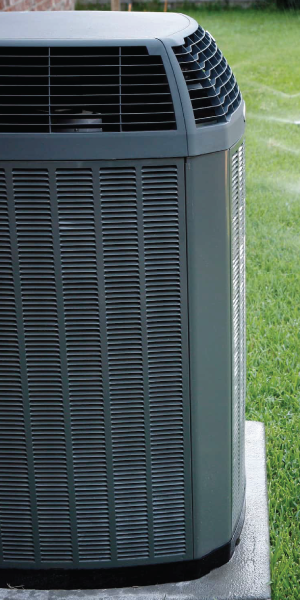Efficiency: You Get Out Of It What You Put Into It… Or Perhaps Not
Most people are probably familiar with the many advertisements and information pamphlets that clamor with one word: “efficiency”. They say their product is “energy efficient”, according, perhaps, to some metric or other. How do you measure efficiency? That’s most important, because you’re going to know your home best, and when you’re in the market for a heating system, that’s an important factor. Some types of heating tend to be more or less efficient than others, while some have climate-dependent efficiency. We’ll look at multiple types of heating, why you should get them, and also why you shouldn’t, and let you make the choice for yourself; it is, after all, your home. At Brock Heating & Air, we have quality foremost in mind.

Types of Heating
As already discussed, some types of heating are climate-dependent, while others feature no such quality. Let’s go over them one by one.
Wood heating is capable of being very efficient and cost-effective, but it depends on a supply of wood, so if firewood is difficult to get wood heating is not a good choice.
Radiant wood stoves are just about 100% efficient – very good indeed; this also applies to pure-burning radiant gas heaters, if they’re designed to be used indoors. On the other hand, neither of these systems are in common use, and can be dangerous if mishandled.
If you live in a sunny climate and don’t have all that much need for heating, letting the sun heat your home costs nothing; this is known by the term “passive solar heating”. It is, unfortunately, not very useful for other climates.
Geothermal heating is yet another option. Geothermal heat pumps work by collecting heat soaked into the ground, which is then used to heat your house. There’s a caveat, however: the ground the heat is collected from needs to remain a fairly constant temperature throughout the year. Geothermal heating is efficient, both because it doesn’t use energy to create heat (other than what the sun put out) and because temperatures belowground tend to be higher than the surrounding air temperature, even in the dead of winter. Unfortunately, geothermal heat has substantial installation and repair costs. Very warm and humid climates work best, followed by cold; geothermal heating isn’t cost-effective in moderate climates.
Mini-split heat pumps (sometimes known as ductless heat pumps) are another option. While they do use electricity to run, they don’t use much of it. This system works by drawing heat from the air and also putting it back into the air, effectively shuttling heat from the outside to the inside of your house, via refrigerant lines. Mini-split heat pumps can also be costly; they’re most cost-effective in hot and warm climates, though some newer models can work in cold climates without an electric backup. Cold-climate ones are more expensive however.
